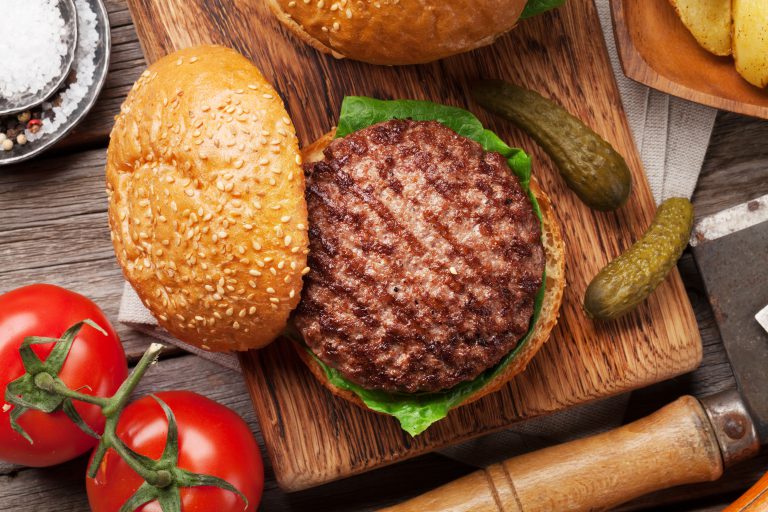More and more people are taking animal welfare and environmental impact into consideration when choosing what to eat. Eating less meat contributes to this in a positive way. The range of meat substitutes in the supermarket has grown considerably in recent years. Of course, taste is also very important in our daily diet, not to mention health.
Below standard
Earlier this year, the Consumentenbond, the Dutch consumers’ association, published a report on the nutritional value of 75 plant-based burgers available in supermarkets. The report showed that only 27 of the products were below the upper limits for salt and saturated fat set by The Netherlands Nutrition Centre. Nevertheless, according to the director of the Consumentenbond, plant-based burgers are generally healthier than beef burgers. Of the 27 burgers that did not contain too much salt and saturated fat, only 4 met the criteria for protein, iron and vitamin B12 used by the Consumentenbond.
Fidesse®
Fabian: “We spent several years developing an ingredient based on sugar beet pulp. We presented the result last December at the Food Ingredients Europe (FIE) fair in Paris under the name Fidesse®. We expect the first plant-based products with this innovative ingredient to hit the shelves soon.” Aviko is expected to introduce a falafel burger with Fidesse®. The ingredient Fidesse® contributes to the final structure of the burger and adds juiciness, one of the unique properties of this new ingredient.

Fabian Griens
Technical Support Specialist at Cosun Beet Company
Sustainable
Fidesse® is fully in line with Cosun’s strategy to make the best use of all components of our plants to create sustainable solutions. Fidesse® is made from the pulp of sugar beets. Griens: “We already use this pulp for many applications. For example, we can use it for animal feed, as raw material for ingredients in home and personal care products, and to make biogas. It is of course very nice that we can now also make a food component from this side stream that we can offer to the food industry.”
No chemical processing
Fabian is willing to reveal the general production process: “After washing and selection for, among other things, product foreign parts such as sand, we cook the sugar beet pulp in a special way. This gives it the right bite and guarantees food safety. No chemical processing is involved! Because sugar beet is a seasonal product that is only processed in the fall, we freeze Fidesse® so that it is readily available to our customers all year round.”
Neutral taste is a major advantage
Fidesse® has a very neutral taste. According to Fabian, this is a major advantage of the ingredient that can be used in plant-based meat substitutes: “Most of the ingredients currently used in plant-based burgers to provide filling and texture have a taste that most consumers do not find very pleasant. Producers therefore use aroma’s, flavor enhancers and salt, among other things, to camouflage this side taste. Fidesse® has hardly any taste, but this does not mean that the final product is tasteless, quite the contrary! It has the unique property that it can optimally absorb moisture, but also color and flavor of, for example, herbs. This makes it very suitable as a raw material for plant-based meat alternatives.”
Building block for tasty and nutritious products
Fidesse® contains barely any carbohydrates; the amount of sugar is minimal. It also contains very little salt, (saturated) fat and energy. The amount of protein is also low, but Fidesse® does contain some fiber. Per burger, this amounts to about 0.7 grams of fiber, in the form of cellulose, hemicellulose and pectin. So the nutritional value is very low, but you can actually see this as an advantage, according to Fabian. “Fidesse® forms a nice building block to develop products with the right composition of fats, carbohydrates and proteins, which also taste good. If desired, vitamins and minerals such as vitamin B12 and iron can easily be added, giving it the same nutritional value as meat.”
It’s up to the product developers now
Fidesse® offers plenty of opportunities to create tasty products that optimally replace meat, and fit into a flexitarian, vegetarian or vegan diet. The focus is currently on the market for plant-based meat substitutes. Intended customers are producers of plant-based burgers and hybrid products, such as nuggets and meatballs, to eat as fingerfood, in sandwiches or with hot meals. Fabian expects that Fidesse® may also be used as an ingredient in bakery and dairy products in the future.


